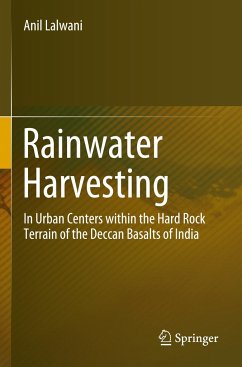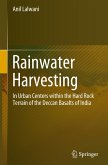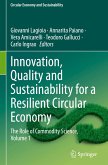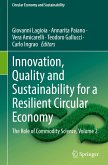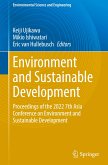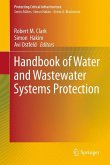Our dependency on groundwater resources and overuse thereof has led to a decline in water table so that in the last couple of decades the focus has shifted back to the traditional practices of rainwater harvesting, and ways and means have been sought to promote Rainwater harvesting in Urban areas to recharge the stressed groundwater systems. This book discusses in brief the classifications of Rainwater harvesting, and the various rainwater harvesting systems that are currently applied. The most important aspect for achieving any groundwater recharge is the availability of source water, this can be evaluated by analyzing the monsoon rainfall pattern, its frequency, number of rainy days, and maximum rainfall in a day and its variation in space and time.
The Deccan basalts are one of the most enigmatic rocks in India and pose a very difficult task when it comes to ground water exploration and groundwater recharge, especially in the urban areas where due to constraint of space one needs to resort to borewells for recharge purpose. It is important for any such undertaking to understand the applicability and sustainability aspects of Rainwater harvesting as it is being practiced.
This book tries to differentiate the Basaltic Aquifers from the other hard-rock Aquifers, and highlights the difficulties in trying to implement rainwater harvesting by groundwater recharge with the basaltic terrain. It also deals with the issue of long term sustainability of roof top Rainwater to meet the growing demands of fresh water. It also highlights some of the shortcomings in the methodologies used and the requirements for being considered in the various categories of green building rating agencies.
It furthermore clarifies the possibility and limitations of dependence of roof top harvesting in addressing the question of water shortages, which is of common occurrence within most urban centres of India. It also helps in clarifying major misconceptionsthat are currently prevailing regarding Roof top Rainwater harvesting especially within the low capacity aquifers within the hard rock terrain of the Deccan basalts.
The Deccan basalts are one of the most enigmatic rocks in India and pose a very difficult task when it comes to ground water exploration and groundwater recharge, especially in the urban areas where due to constraint of space one needs to resort to borewells for recharge purpose. It is important for any such undertaking to understand the applicability and sustainability aspects of Rainwater harvesting as it is being practiced.
This book tries to differentiate the Basaltic Aquifers from the other hard-rock Aquifers, and highlights the difficulties in trying to implement rainwater harvesting by groundwater recharge with the basaltic terrain. It also deals with the issue of long term sustainability of roof top Rainwater to meet the growing demands of fresh water. It also highlights some of the shortcomings in the methodologies used and the requirements for being considered in the various categories of green building rating agencies.
It furthermore clarifies the possibility and limitations of dependence of roof top harvesting in addressing the question of water shortages, which is of common occurrence within most urban centres of India. It also helps in clarifying major misconceptionsthat are currently prevailing regarding Roof top Rainwater harvesting especially within the low capacity aquifers within the hard rock terrain of the Deccan basalts.

